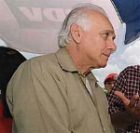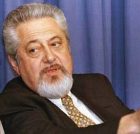International
Situation at Venezuela’s PDVSA deterioratesAn oil industry version of a Shakespearean tragedy is underway in Caracas, and like any good drama of this genre, there are many losers and few, if any, winners. The latest act involves the sudden departure of the president of state oil firm PDVSA (or PDV for short), the immediate departures of five other PDV executives and the controversial appointment of a new PDV president. Venezuela’s oil drama began last February, when newly inaugurated President Hugo Chavez nominated Ali Rodriguez as Minister of Energy & Mines. Chavez then fired internationally popular PDV President Luis Giusti. Chavez replaced Giusti with Roberto Mandini, who had been head of PDV subsidiary Corpoven and executive vice president of CITGO. Rodriguez’s appointment was seen as a signal by Chavez, that Venezuela would slow its crude output expansion and adhere to OPEC quotas. Rodriquez had criticized the opening of Venezuela’s E&P sector to foreign investment. As a legislator, he had brought a lawsuit challenging the legality of the opening under the Venezuelan constitution. Naming Mandini as PDV president sent a mixed signal. On one hand, Mandini had criticized the rapid growth of Venezuela’s oil sales, claiming that it depressed global crude prices. However, he also worked closely for years with Western oil companies, and he was not nearly as opposed to foreign investment as Rodriquez.
What is not clear is what happened between Chavez and Mandini during the seven months that ended on August 30. There may have been a difference in style, with Mandini not moving fast enough to clear up the corruption that Chavez alleges is rife within PDV and the government. Mandini also erred, when he caused crude prices to dip $1.50/bbl in July by stating that OPEC needed to raise output to cool off oil markets. In any event, a power struggle took place, and Mandini lost. On August 30, he resigned (perhaps told to resign or be fired). Chavez quickly replaced Mandini with Hector Ciavaldini, who had been PDV’s vice president of strategic planning and president of the Interven subsidiary. Ciavaldini’s appointment was jeered by Chavez’s opponents, who charged that he is not qualified to lead PDV. Ciavaldini is not without some credentials. He earned a chemical engineering degree from Universidad Central de Venezuela (UCV) in 1964 and obtained a PhD from the University of London. He was a UCV professor from 1964 to 1983. In 1983, he joined PDV, serving in Pequiven’s Technology Department and then in several roles with Bariven (1989 to 1995). He left in 1995 to consult for Ferrostaal de Venezuela. However, Ciavaldini also joined a group that planned Chavez’s candidacy and platform during the presidential race. When Chavez won, Ciavaldini moved into a select inner circle. In December 1998, he presided over a special commission at PDV and by February had moved over to vice president of strategic planning. Ciavaldini’s ascendancy means two things: 1) Politics will play a much larger role in PDV’s operations; and 2) The days of PDV’s rapid crude output expansion are gone. Adherence to OPEC quotas is now paramount.
Mandini’s departure and Ciavaldini’s appointment also caused an event that may be far more detrimental to PDV’s health-the resignations of five top-level executives. These include E&P Vice President Juan Szabo; Manufacturing and Marketing Vice President Eduardo Lopez; Finance Vice President Eduardo Blanco; Communications Director Antonio Marquez; and Corporate Affairs Coordinator Antonieta Mendoza de Lopez. Within a week’s time, a large chunk of PDV’s brain trust and technical leadership was gone. Szabo’s resignation is the most damaging. He was highly regarded for his technical and administrative abilities, and was popular among his employees. He also was a favorite with Western oil companies, and was particularly popular with the Houston energy community, where his command of English and confident personality earned him the nickname "junior Luis Giusti." The loss of Szabo and his associates will further erode Western investors’ flagging confidence, that the Chavez regime can handle Venezuela’s oil affairs competently. U.S. independents appeal trade case. As
we reported last month, the Commerce Department’s International Trade Administration
ruled that it would not hear the foreign oil dumping petition filed by a group of
independent oil firms know as Save Domestic Oil (SDO). Undaunted, SDO last month filed an
appeal of ITA’s decision with the federal Court of International Trade in New York. SDO
also has accused DOE Secretary Bill Richardson of influencing Commerce’s rejection of
its petition and wants to find out what role he played in getting the case dismissed. SDO
said the appeal process should take roughly a year. We will keep you posted on the process.
Readers may also wish to visit SDO’s web site at www.savedomesticoil.com.
Copyright © 1999 World
Oil |
- Applying ultra-deep LWD resistivity technology successfully in a SAGD operation (May 2019)
- Adoption of wireless intelligent completions advances (May 2019)
- Majors double down as takeaway crunch eases (April 2019)
- What’s new in well logging and formation evaluation (April 2019)
- Qualification of a 20,000-psi subsea BOP: A collaborative approach (February 2019)
- ConocoPhillips’ Greg Leveille sees rapid trajectory of technical advancement continuing (February 2019)






